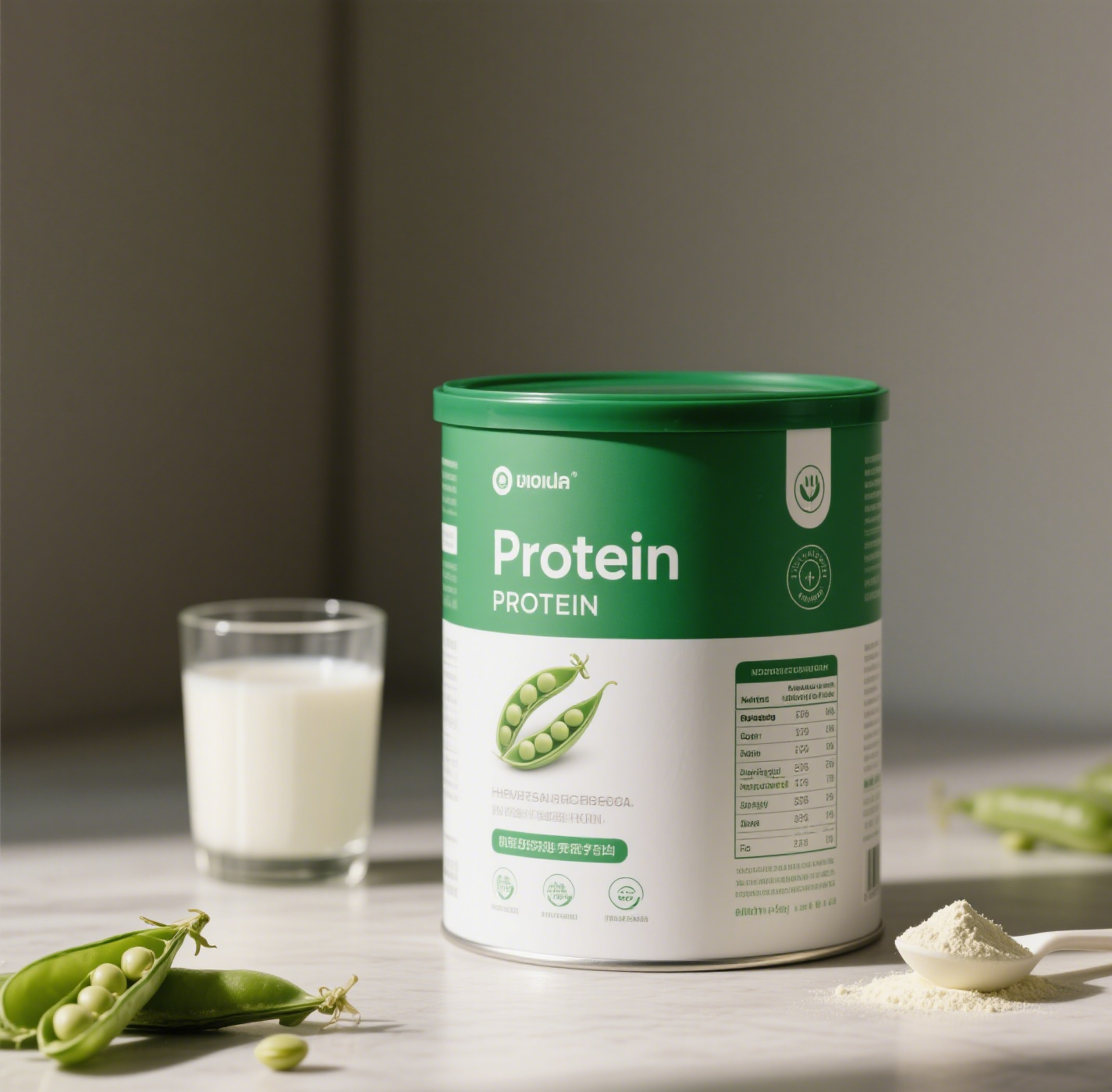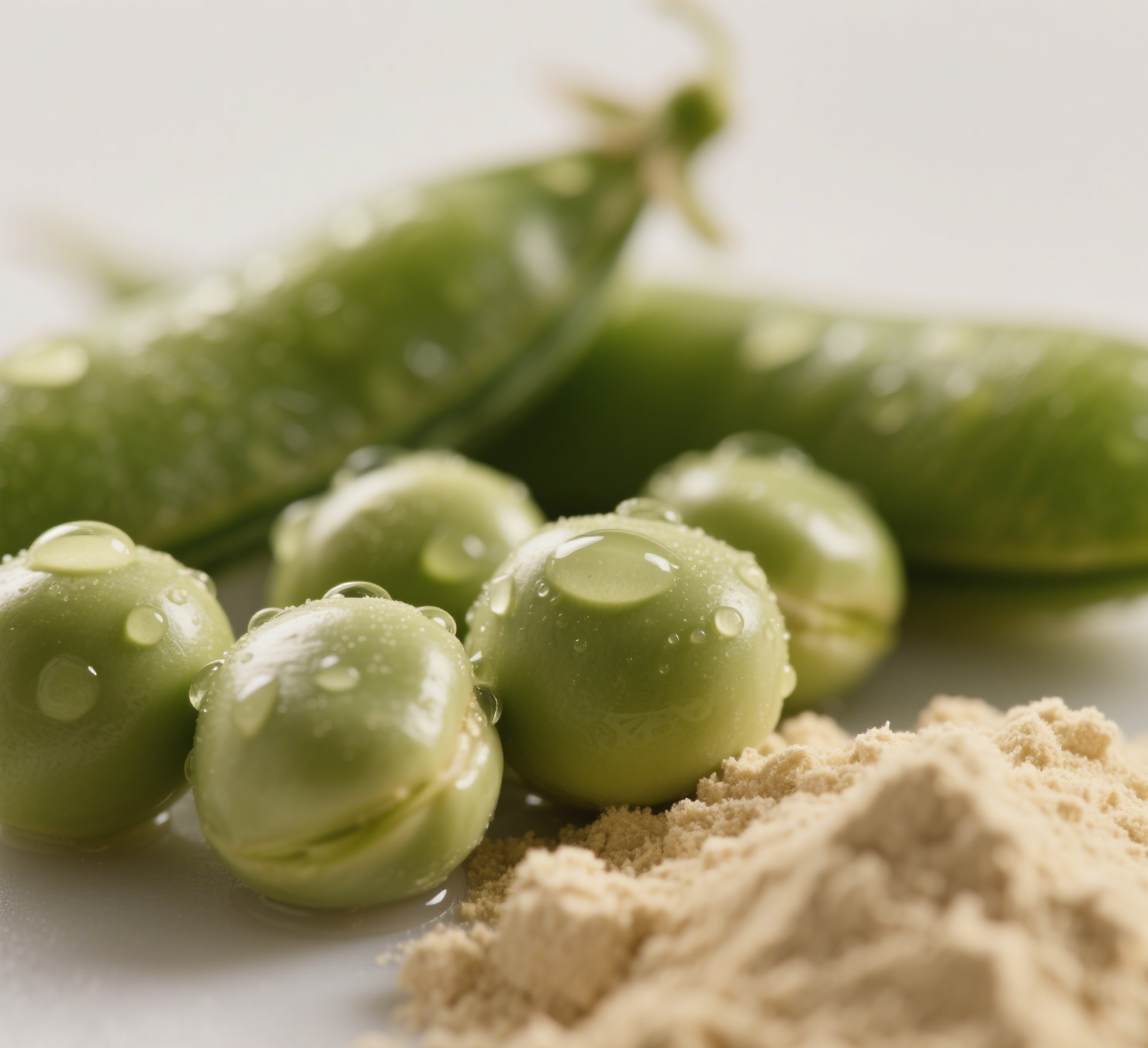The Rise of Sustainable Plant-Based Proteins in Food Manufacturing
The food manufacturing industry is experiencing a remarkable transformation as sustainability takes center stage in production processes and ingredient choices. Among the various plant-based protein alternatives, pea protein has emerged as a frontrunner in sustainable food production. This remarkable ingredient not only offers exceptional nutritional benefits but also demonstrates impressive environmental credentials that align perfectly with modern sustainability goals.
As consumers become increasingly conscious of their environmental footprint, food manufacturers are actively seeking ingredients that can meet both nutritional requirements and sustainability standards. Pea protein stands out in this regard, offering a compelling solution that addresses multiple aspects of sustainable food production while maintaining high quality and functionality in various food applications.
Environmental Benefits of Pea Protein Production
Water Conservation and Soil Health
One of the most significant advantages of pea protein production is its minimal water requirements compared to traditional protein sources. Yellow peas, the primary source of pea protein, are notably drought-resistant and can thrive in various climatic conditions. This characteristic substantially reduces the irrigation needs during cultivation, making it an environmentally responsible choice for food manufacturers.
Furthermore, pea crops play a vital role in maintaining soil health through natural nitrogen fixation. As legumes, peas form symbiotic relationships with soil bacteria, converting atmospheric nitrogen into a form that plants can use. This natural process reduces the need for synthetic fertilizers, leading to lower environmental impact and improved soil fertility for subsequent crops.
Carbon Footprint Reduction
The production of pea protein generates significantly lower greenhouse gas emissions compared to animal-based proteins. The entire process, from cultivation to processing, requires less energy and produces fewer carbon emissions. This reduced carbon footprint makes pea protein an attractive option for food manufacturers committed to environmental stewardship and carbon reduction goals.
Additionally, the ability of pea crops to fix nitrogen naturally means less reliance on energy-intensive synthetic fertilizers, further reducing the overall carbon footprint of pea protein production. This characteristic makes it an exemplary choice for sustainable food manufacturing practices.
Economic Sustainability in Food Manufacturing
Cost-Effective Production Methods
The economic viability of pea protein extends beyond its environmental benefits. The relatively simple processing requirements and lower resource inputs make it a cost-effective option for food manufacturers. The processing method typically involves dry milling and air classification, which are energy-efficient processes compared to other protein extraction methods.
Moreover, the stability of pea crops in various growing conditions reduces crop failure risks, ensuring a more reliable supply chain for manufacturers. This reliability translates to more stable pricing and better long-term planning capabilities for food production facilities.
Market Growth and Investment Returns
The increasing consumer demand for plant-based proteins has created a robust market for pea protein products. Food manufacturers investing in pea protein production facilities are seeing strong returns on investment, driven by growing market acceptance and versatile application possibilities. The scalability of pea protein production also allows manufacturers to efficiently meet increasing demand without significant additional infrastructure investments.
The adaptability of pea protein in various food applications, from meat alternatives to dairy-free products, provides manufacturers with multiple revenue streams and product development opportunities. This versatility ensures long-term economic sustainability for businesses investing in pea protein production.

Technical Advantages in Food Manufacturing
Processing Flexibility and Stability
Pea protein demonstrates remarkable stability during various processing conditions, making it highly suitable for different manufacturing processes. Its heat stability allows for various cooking methods without losing nutritional value or functional properties. This characteristic provides manufacturers with greater flexibility in product development and processing methods.
The protein's natural emulsifying and binding properties also contribute to its processing advantages. These functional properties help reduce the need for additional stabilizers or emulsifiers, supporting cleaner label initiatives while maintaining product quality and consistency.
Storage and Shelf Life Benefits
The stability of pea protein extends to its storage properties, offering manufacturers practical advantages in inventory management. The dry powder form of pea protein has a longer shelf life compared to many other protein sources, reducing waste and improving resource efficiency in the manufacturing process.
Additionally, pea protein's resistance to oxidation and minimal moisture absorption characteristics help maintain product quality during storage and distribution. These properties contribute to reduced food waste and more sustainable manufacturing operations.
Frequently Asked Questions
How does pea protein compare to other plant-based proteins in terms of sustainability?
Pea protein stands out among plant-based proteins due to its lower water requirements, natural nitrogen-fixing abilities, and efficient processing methods. Compared to soy or wheat proteins, pea protein typically requires less agricultural input and has a smaller environmental footprint while offering similar nutritional benefits.
What makes pea protein production economically sustainable for manufacturers?
The economic sustainability of pea protein production stems from its efficient processing methods, stable supply chain, and growing market demand. The relatively simple extraction process, combined with lower resource requirements and multiple application possibilities, ensures strong return on investment for manufacturers.
Can pea protein production scale to meet increasing market demands?
Yes, pea protein production is highly scalable due to the adaptability of pea crops to various growing conditions and the straightforward nature of processing methods. Manufacturers can efficiently expand production capacity while maintaining sustainable practices and economic viability.

